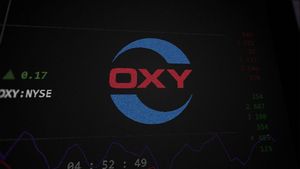Backed by Mastercard and other leading companies, the framework helps enterprises assess AI technologies for both risk and business impact.
The D&TA Alliance (formerly the D&TA), a CEO-led nonprofit consortium focused on data, trust, and AI, today announced the release of its AI Vendor Assessment Framework (VAF) — a practical set of questions and guidance designed to help businesses evaluate generative AI products for risk, scalability, and value before purchase.
Enterprises face mounting pressure to ensure third-party AI solutions can deliver a strong return on investment. The VAF provides a clear framework to help organizations assess both risk and value to support a cost-benefit analysis earlier in the cycle. This includes risk issues such as privacy, intellectual property, and transparency, as well as business value considerations, such as integration costs, vendor stability, and scalability potential.
“At Mastercard, we’re advancing responsible AI—and we’re putting trust first,” said Andrew Reiskind, Chief Data Officer at Mastercard. “We’re building and scaling GenAI with clear principles, strong guardrails, and human oversight, and we’re working with partners across the ecosystem to raise the bar on AI governance. We welcome this framework and its practical risk‑based focus to help buyers ask the right questions of GenAI providers and to guide vendors on responsible practices. It’s a helpful step toward thoughtful, efficient deployment of AI to support innovation.”
A Practical Tool for a Complex Marketplace
Developed with input from Alliance members and advisors in law, procurement, technology, and operations, the VAF reflects broad cross-sector collaboration. To ensure it meets the needs of both buyers and vendors, the Alliance is releasing it publicly to invite feedback. The framework is designed to be immediately usable, enabling teams to save time, reduce risk, and maximize the value of AI investments.
“By adopting the AI Vendor Assessment Framework, organizations are able to bring greater structure, clarity, and consistency to their procurement process,” said Megan Areias, Lead Technology and Data Counsel at Kenvue. “The framework enables organizations to evaluate vendor responses more objectively and thoroughly across critical areas like compliance, technical capability, and risk management. It streamlines decision-making by reducing back-and-forth, allowing both the organization and the vendor to move more efficiently through the evaluation process. Most importantly, it lays the foundation for stronger, more transparent partnerships as organizations continue to grow and innovate with AI.”
Key features of the VAF include:
- Right-sized due diligence: The framework offers baseline questions that expand into deeper diligence only when warranted, so buyers can streamline reviews and focus on outcomes.
- Domain-specific guidance: It provides specific guidance across privacy, security, explainability, compliance, fairness, transparency, and intellectual property.
- Plain-language accessibility: The framework includes plain-language guidance with examples of “strong” vendor responses so that business leaders without technical acumen are better equipped to move forward.
- A modular structure: The framework features a modular structure that can be adapted to different industries, AI maturity levels, and product types — generative and non-generative alike.
Supporting Smarter Decisions on Both Sides of the Table
The VAF is designed primarily for buyers, but also shortens sales cycles and reduces wasted effort for vendors. By clarifying expectations on transparency, safeguards, and product maturity, it provides both sides with a shared playbook for responsible AI adoption.
“From a vendor’s perspective, the D&TA framework is a game changer,” said Chris Hazard, Chief Technology Officer, Howso. “It replaces scattered, repetitive, or irrelevant questions with a common standard that saves us time, helps buyers build confidence more quickly, and prompts fruitful discussion earlier in the procurement process.”
“As both a buyer and a vendor, Transcarent sees immense value in the AI Vendor Assessment Framework,” said Ben Diamond, Vice President, Associate General Counsel, Transcarent. “It brings much-needed structure and transparency to the evaluation process, helping us clearly communicate how our AI products meet enterprise needs, while also giving us a thoughtful lens for assessing third-party tools we consider adopting. It’s a practical step toward building trust and making faster, better-aligned decisions in a complex space.”
Cross-Sector Collaboration and Ongoing Development
The framework reflects input from companies across finance, healthcare, retail, logistics, consumer technology, and more. It will be refined regularly to reflect feedback and the rapidly evolving AI landscape, ensuring it remains practical and relevant.
“RIL appreciates the D&TA AI Vendor Assessment Framework,” said Gaurab Bansal, Executive Director, Responsible Innovation Labs. “For startups this framework becomes an important marker in startup go-to-market strategy. It allows emerging companies with strong execution to show transparency and intent. It gives enterprise confidence that serious startup builders are building toward enterprise-grade standards. The framework creates a more level playing field by providing a pathway for demonstrating commitment to responsible AI practices. This enables enterprise buyers to evaluate solutions based on merit rather than just company size. We welcome the framework given RIL’s belief that responsible innovation is a decisive competitive advantage in the AI marketplace and we support D&TA's goal to iterate with startup feedback.”
For more information or to access the framework, visit AI Vendor Assessment Framework.
About the D&TA Alliance
The Data & Trusted AI Alliance (D&TA Alliance) is a CEO-led, nonprofit consortium of industry leaders, including AMD, AT&T, General Motors, IBM, Johnson & Johnson, Mastercard, Nike, Salesforce, and UPS. The Alliance focuses on accelerating the deployment of AI by establishing standardized practices that ensure both business value and trust. The D&TA Alliance offers a suite of practitioner-built tools, such as Algorithmic Bias Safeguards, a framework for Responsible Data & AI Diligence, Data Provenance Standards, and an AI Vendor Assessment Framework. The organization is co-chaired by Ken Chenault and Sam Palmisano, with Jon Iwata as Executive Chairman and Saira Jesani as Executive Director. For more information, visit dtaalliance.org.
View source version on businesswire.com: https://www.businesswire.com/news/home/20251001994137/en/
"We welcome this framework and its practical risk-based focus to help buyers ask the right questions of GenAI providers and to guide vendors on responsible practices. It’s a helpful step toward thoughtful, efficient deployment of AI to support innovation."
Contacts
Media Contact:





